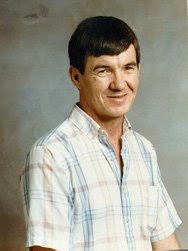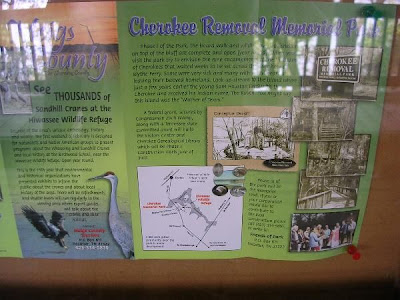
And so it came to pass: last night the State of Alabama finally succeeded in its quest to kill former Police Officer Ronald Patrick Swiney.
The place of death: Donaldson Correctional Facility in Bessemer, where Mr. Swiney was serving a sentence of life imprisonment, without parole, upon his 1989 wrongful conviction for murdering his former wife, Betty Snow Swiney, and her ex husband, Ronnie Lynn Pate.
And indeed that conviction was wrong; it rested solely on evidence fabricated by the State, tailor-made to coincide with the scene of the crime. This fact cannot be denied; in recent years the nation’s leading experts in gun shot residue, ballistics and forensic pathology scientifically proved Patrick could not possibly have done what the State accused him of.
But the State courts would not hear of it; the newly-discovered evidence of Patrick’s innocence they would not consider. The judges and prosecutors remained hell-bent on covering up the truth: that the murders were committed by others, while Patrick was convicted of them, in retaliation for what Patrick did as a career police officer several years earlier … while working as an investigator for the Gulf Shores Police, Swiney uncovered evidence that a large scale drug ring was being spearheaded by then Baldwin County District Attorney Jimmy Hendrix and then Baldwin County Sheriff’s Department Chief Investigator Bobbie Stewart. A cop’s cop having sworn to uphold the law, Patrick turned the evidence over to federal authorities. Resulting was that some 47,000 lbs. of illegal drugs were seized, and DA Hendrix and Investigator Stewart were both sentenced to federal prison.
Soon after, several attempts on Officer Swiney’s life were made. One was nearly successful: at the hands of assailants he suffered knife wounds requiring several hundred stitches to keep him alive. One of the three assailants was identified. Though originally charged with First Degree Assault and Attempted Murder, a Baldwin County judge reduced the charges to a single count of Simple Assault for which he was allowed to go free after paying a small fine.
Throughout the many years of serving his unjust sentence to life imprisonment, former Officer Swiney was routinely denied the same quality medical care as afforded other inmates. Years ago he began suffering from serious heart problems. His medical records show as much. They also show he was denied corrective surgery. After developing pneumonia last week, he finally died on Tuesday, July 28, age 64. Plain and simple: it was a killing by the State of Alabama; not by lethal injection or the electric chair, but by confining an innocent man to an isolated dank prison cell and consciously ignoring his medical needs.
A reward is being offered for information leading to the arrest, prosecution and conviction of the person(s) actually responsible for planning and/or carrying out the December 10, 1987 murders of Betty Snow Swiney and Ronnie Lynn Pate.
(article taken from post by BookemDanno) To learn more about Patrick and the Website he inspired go here
The place of death: Donaldson Correctional Facility in Bessemer, where Mr. Swiney was serving a sentence of life imprisonment, without parole, upon his 1989 wrongful conviction for murdering his former wife, Betty Snow Swiney, and her ex husband, Ronnie Lynn Pate.
And indeed that conviction was wrong; it rested solely on evidence fabricated by the State, tailor-made to coincide with the scene of the crime. This fact cannot be denied; in recent years the nation’s leading experts in gun shot residue, ballistics and forensic pathology scientifically proved Patrick could not possibly have done what the State accused him of.
But the State courts would not hear of it; the newly-discovered evidence of Patrick’s innocence they would not consider. The judges and prosecutors remained hell-bent on covering up the truth: that the murders were committed by others, while Patrick was convicted of them, in retaliation for what Patrick did as a career police officer several years earlier … while working as an investigator for the Gulf Shores Police, Swiney uncovered evidence that a large scale drug ring was being spearheaded by then Baldwin County District Attorney Jimmy Hendrix and then Baldwin County Sheriff’s Department Chief Investigator Bobbie Stewart. A cop’s cop having sworn to uphold the law, Patrick turned the evidence over to federal authorities. Resulting was that some 47,000 lbs. of illegal drugs were seized, and DA Hendrix and Investigator Stewart were both sentenced to federal prison.
Soon after, several attempts on Officer Swiney’s life were made. One was nearly successful: at the hands of assailants he suffered knife wounds requiring several hundred stitches to keep him alive. One of the three assailants was identified. Though originally charged with First Degree Assault and Attempted Murder, a Baldwin County judge reduced the charges to a single count of Simple Assault for which he was allowed to go free after paying a small fine.
Throughout the many years of serving his unjust sentence to life imprisonment, former Officer Swiney was routinely denied the same quality medical care as afforded other inmates. Years ago he began suffering from serious heart problems. His medical records show as much. They also show he was denied corrective surgery. After developing pneumonia last week, he finally died on Tuesday, July 28, age 64. Plain and simple: it was a killing by the State of Alabama; not by lethal injection or the electric chair, but by confining an innocent man to an isolated dank prison cell and consciously ignoring his medical needs.
A reward is being offered for information leading to the arrest, prosecution and conviction of the person(s) actually responsible for planning and/or carrying out the December 10, 1987 murders of Betty Snow Swiney and Ronnie Lynn Pate.
(article taken from post by BookemDanno) To learn more about Patrick and the Website he inspired go here







